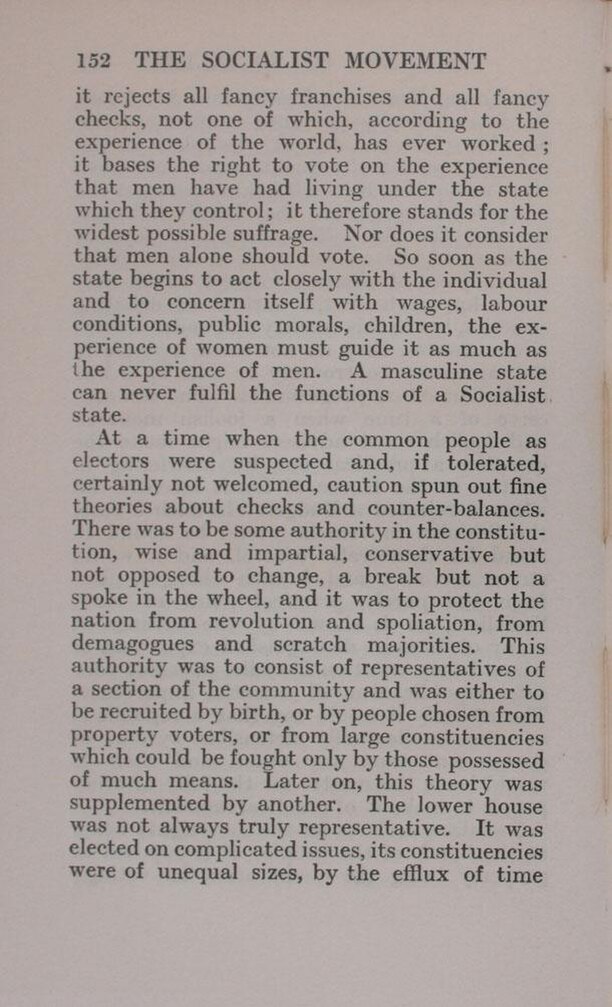it rejects all fancy franchises and all fancy checks, not one of which, according to the experience of the world, has ever worked; it bases the right to vote on the experience that men have had living under the state which they control; it therefore stands for the widest possible suffrage. Nor does it consider that men alone should vote. So soon as the state begins to act closely with the individual and to concern itself with wages, labour conditions, public morals, children, the experience of women must guide it as much as the experience of men. A masculine state can never fulfil the functions of a Socialist state.
At a time when the common people as electors were suspected and, if tolerated, certainly not welcomed, caution spun out fine theories about checks and counter-balances. There was to be some authority in the constitution, wise and impartial, conservative but not opposed to change, a break but not a spoke in the wheel, and it was to protect the nation from revolution and spoliation, from demagogues and scratch majorities. This authority was to consist of representatives of a section of the community and was either to be recruited by birth, or by people chosen from property voters, or from large constituencies which could be fought only by those possessed of much means. Later on, this theory was supplemented by another. The lower house was not always truly representative. It was elected on complicated issues, its constituencies were of unequal sizes, by the efflux of time
